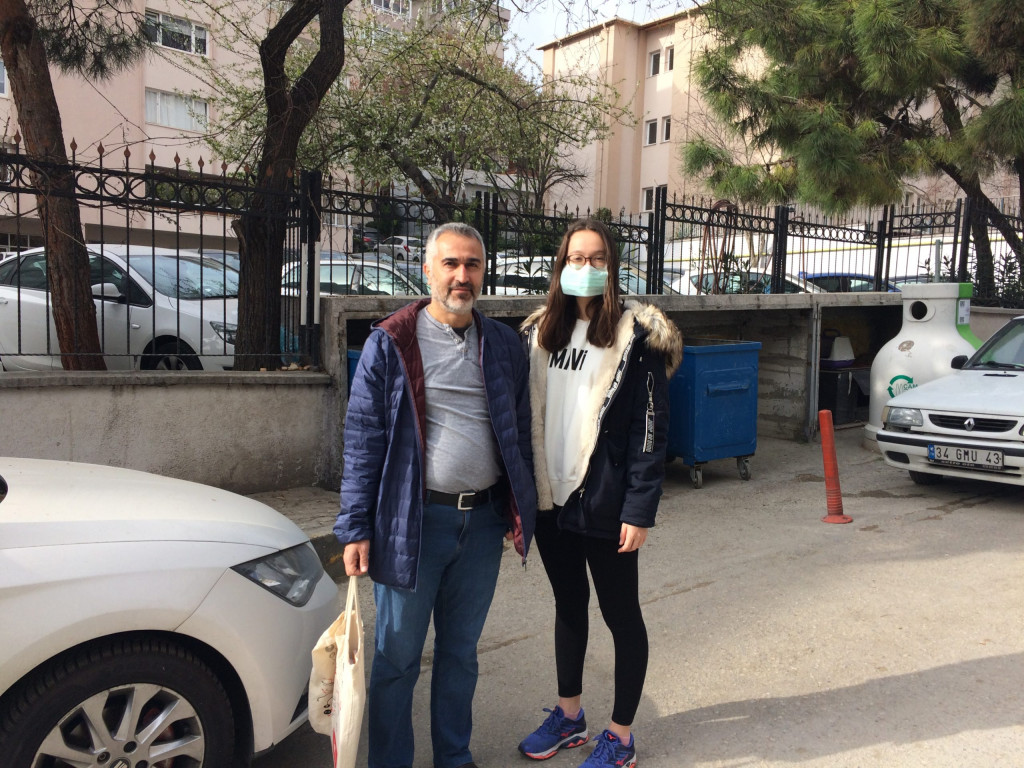Local Insights in Times of Pandemics
Forced to Distanciation – Types of Barriers in Days of Pandemic
Fear is felt and shared by lots of people in these extraordinary times. The pandemic days are not the first of its kind, but still a complete startling experience in times of globalization. The speed of traveling and communicating is transforming from a blessing to a curse. As fast as the Virus mutates it seems to spread. With its global straggle, it heats up fear even faster than the fever of illness.
Camus’ novel La Peste is about the fight for existential answers. Journalist Lisbeth Koutchoumoff Arman writing for Le Temps compares the struggles of the characters in the classic novel with nowadays Corona Crisis. “Denial, contempt, scheming, panic, escape or engagement” seems to be fundamental notions in pandemic days. How about Istanbul, Kadıköy, Koşuyolu neighborhood, Mütevelli Çeşme Caddesi?
A theatre student is banned from going to university; a security guard is forced to work to support his family; the mayor of Koşuyolu is very busy; a cook of a kebab restaurant is a bored enthusiast; a stressed accountant and a father with his high school student-daughter; they all try to explain how they react to the confused now.
Dualism as the common (behaviour)
The social distance arising because of the virus is physical, but it causes social readjustements.
People say they are good, but in fact they are not. They say they aren’t afraid, but they are. Afraid, not for themselves but for their relatives, their friends, their businesses, their jobs, their country and most of all afraid about the unknown.
Strategies of coping
In the Camus’ sense, the security guard is a Fatalist. He wants changes in societies and feels abandoned by the government, which could take in charge the month’s salary of workers so that they could stay at home. But no, “die or survive” is the motto. He takes into account being a father, responsible for an entire family, afraid of bringing the virus home when he comes back from work. He’d like to go to his hometown, to breathe some fresh oxygen and stay away from troubles. But he doesn’t believe in any productive change on the social scale.
“If things get more complicated, we start eating each other” says Büşra, the theater student, who describes how she feels about the Turkish way of dealing with situations. She is a Doubter on the Turkish ability for real closeness, solidarity and coexistence. As a student, linked to the art world, Büşra sees the current “black or white”, trying to prepare psychologically in order to avoid “depression” (a word she uses ironically to express the absurdity of the whole process she’s going through).
The mayor of Koşuyolu in contrary is a Practitioner. She takes the time to observe and to get in touch with the ones who have difficulties. As well in her life as a mother and wife, she cares and engages. She plays with her sons and tries to get inventive and creative, and comprehends when it comes to fights due to the omnipresent obstacles: the current narrowness, unanswered questions and the uncertain future.
The accountant is a Calculator. She fears being caught by time, seeing future perspectives vanishing slowly. She focuses on stress management, seeing herself unable to adapt.
The kebab’s cook on Koşuyolu Caddesi is a Pragmatist. His answers are short and to the point. He’s sparing emotions. Activity means to survive, the running time is a gain of life span.
The dad and his daughter are the Cautious ones. Sure about themselves, they see their courtyard as a safe space to catch some air, without getting too close to any neighbor.
“I am to late, I have to run” is the Calculators constant worry. “People are difficult, not the world” says the Fatalist. “I need to do more” wishes the Practitioner. “Does it make any sense here in this place” fears the Doubter. “Carpe diem” says the Pragmatist.
Attempts to overcome the Void of a Plague
Corona days are times of loneliness, leading to existentialist questionings: time management, the boil over and void of emotions, the management of space and separation, movement and rigid holds. Things seem to oppose more and more in our daily rhythms: quick vs. slow, normal vs. surreal, regular vs. irregular.
Stress and anxiety management is various. The security guard and his family stopped eating from the same plate, which is a custom for them. The Kebab-cook is avoiding any kind of newspaper. The mayor walks from closed Cafés to restaurants, in order to help and talk. The Calculator doesn’t know whether confiding her anxiety or not. The theatre student plans to think of her future projects.
When physical contact and communal living are thought about with fear, it seems confusing for everyone to accept physical distance as the only way for protection.
In La Peste, Camus relates to the nature of destiny and the human conditions. Fatalism, Pragmatism, Doubting, Accounting, and Practicing are some of them. The existential questions arising have to be asked today in the context of a globalized world.
In times of a pandemic, humanity needs to connect and coexist socially, psychologically and philosophically to escape paranoia and to generate a gain of sense in the void the human losses create currently.
The Serial “Overcoming the Void of a Plague” will discuss these topics on InEnArt.

